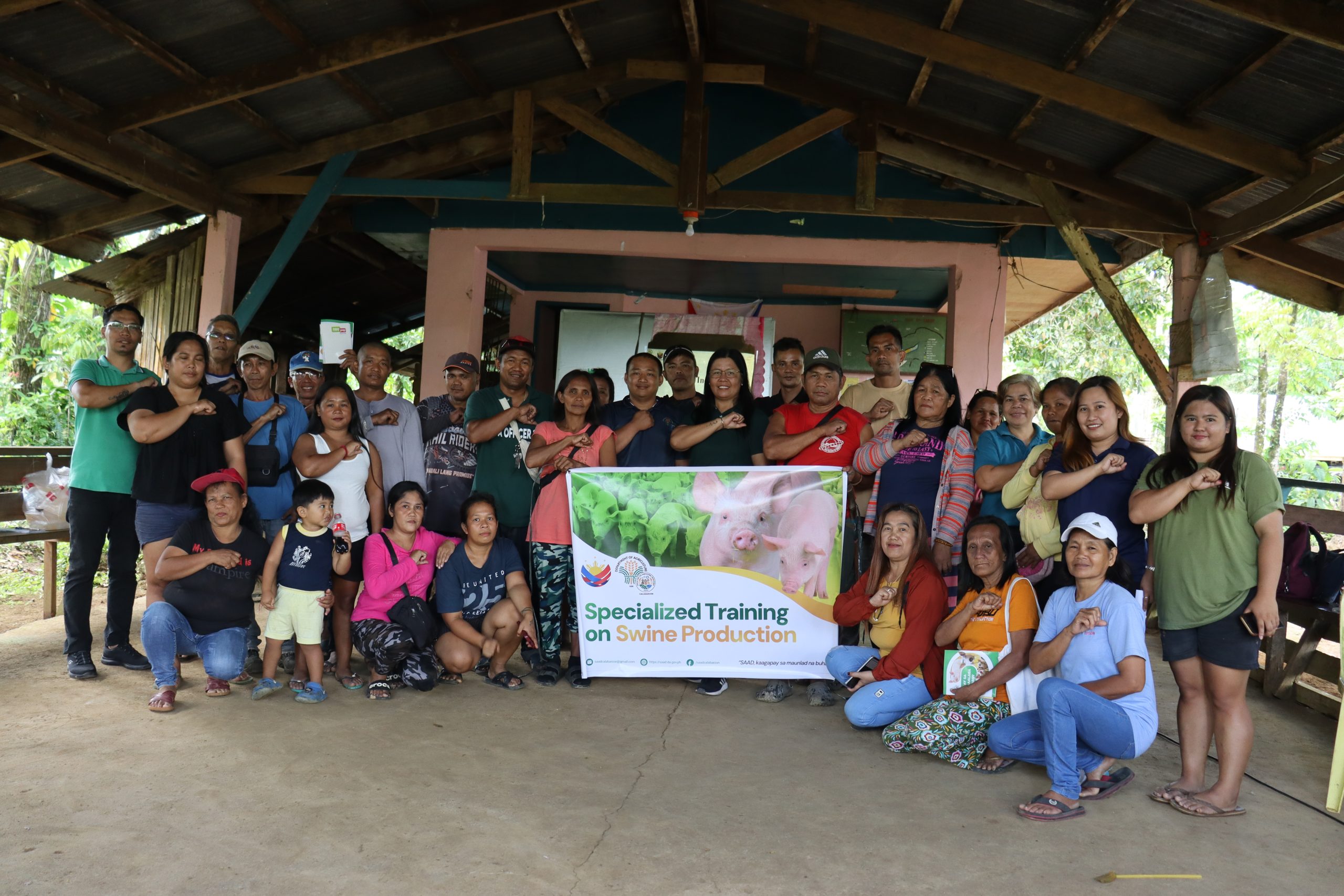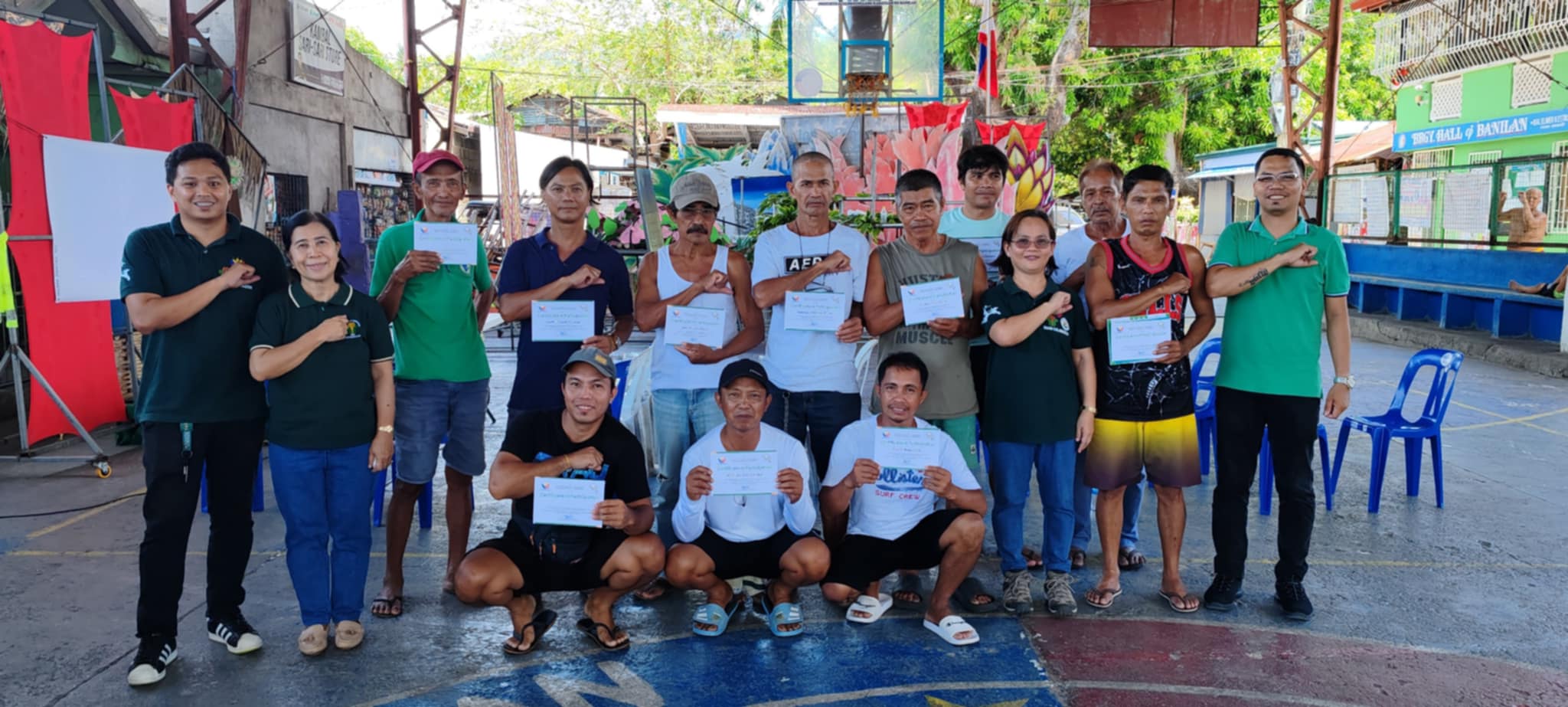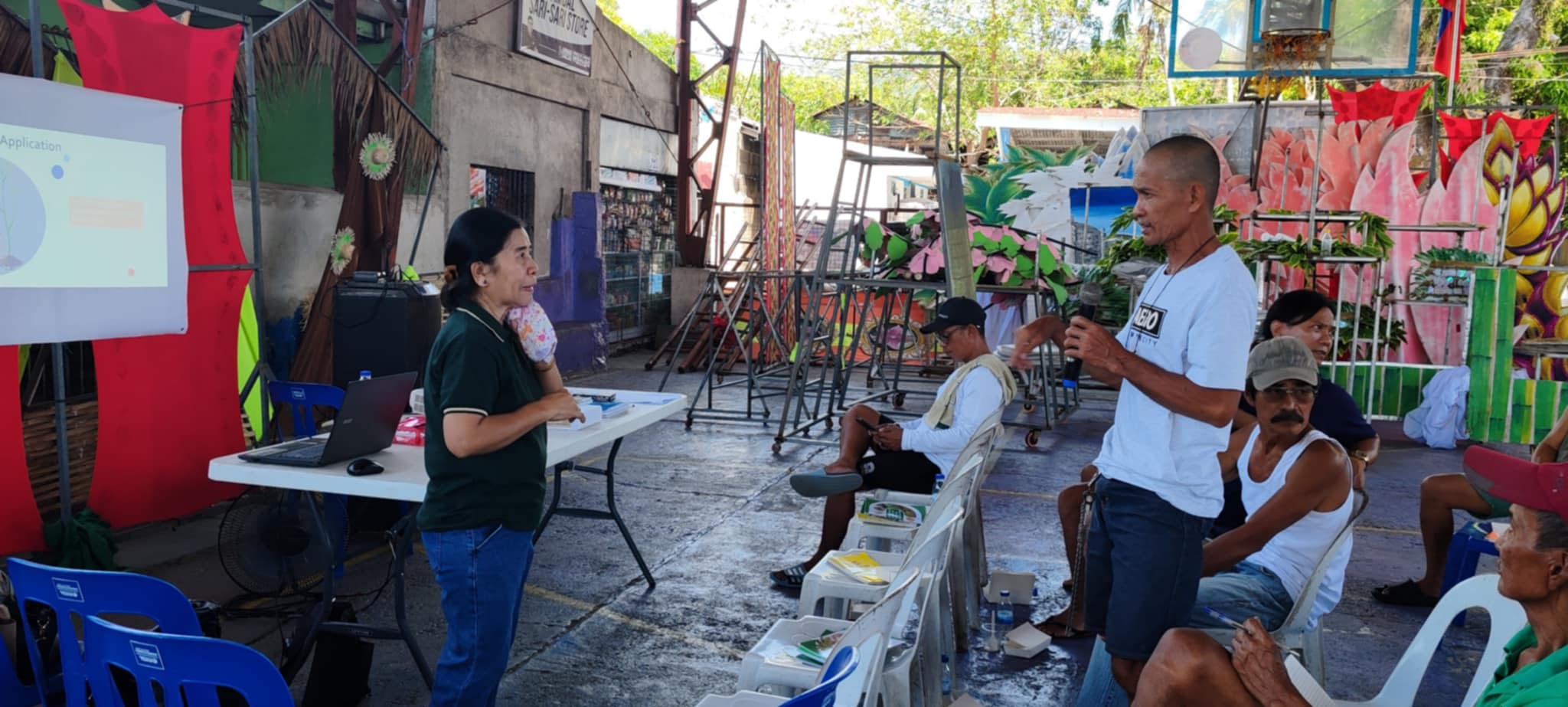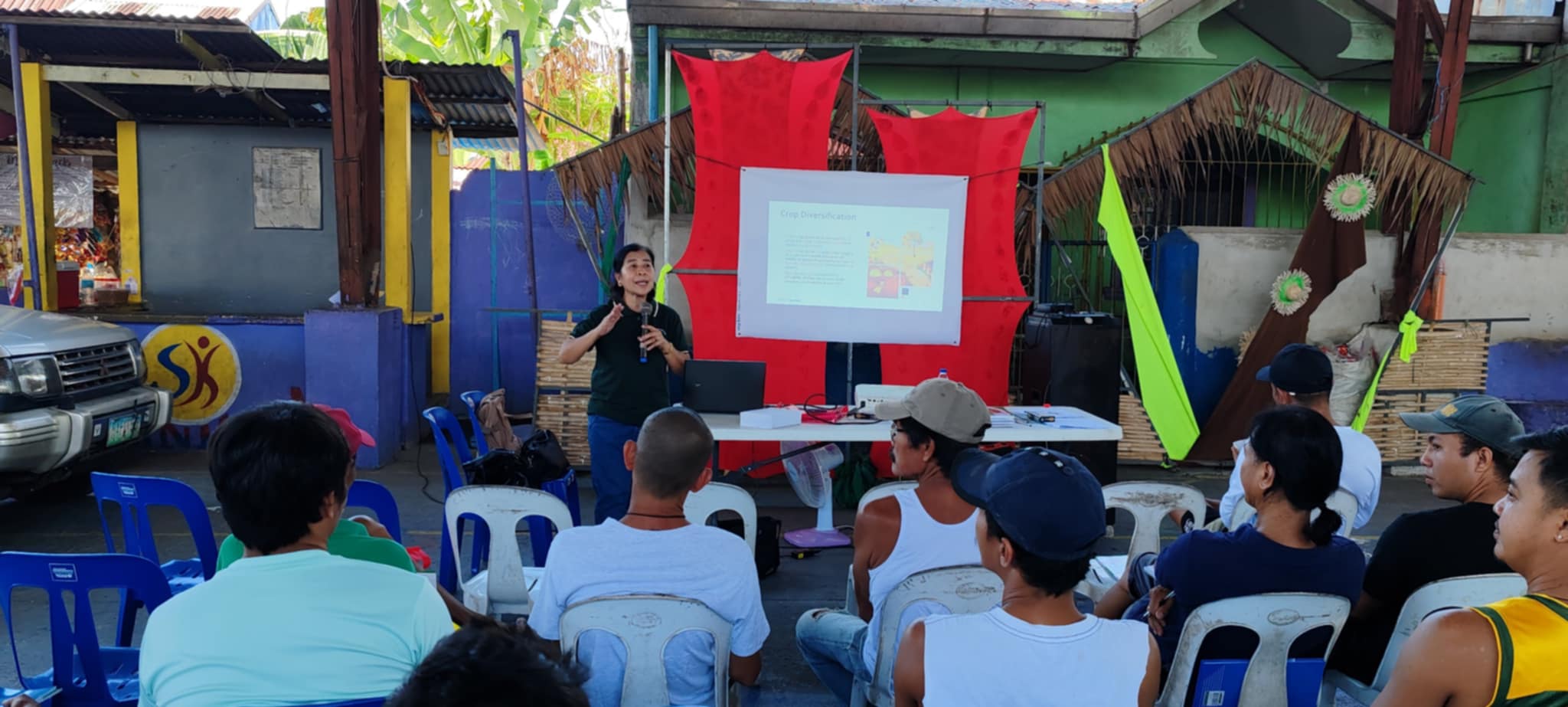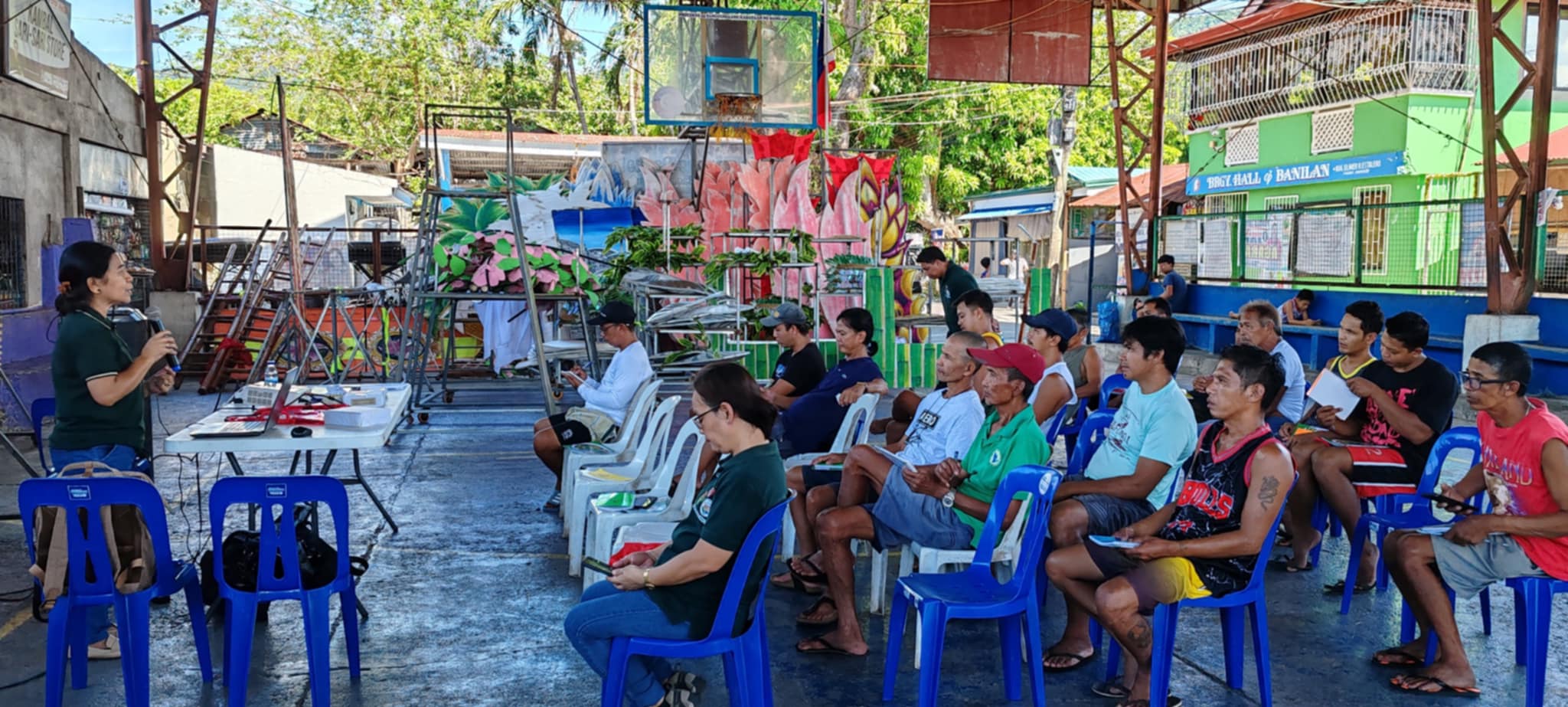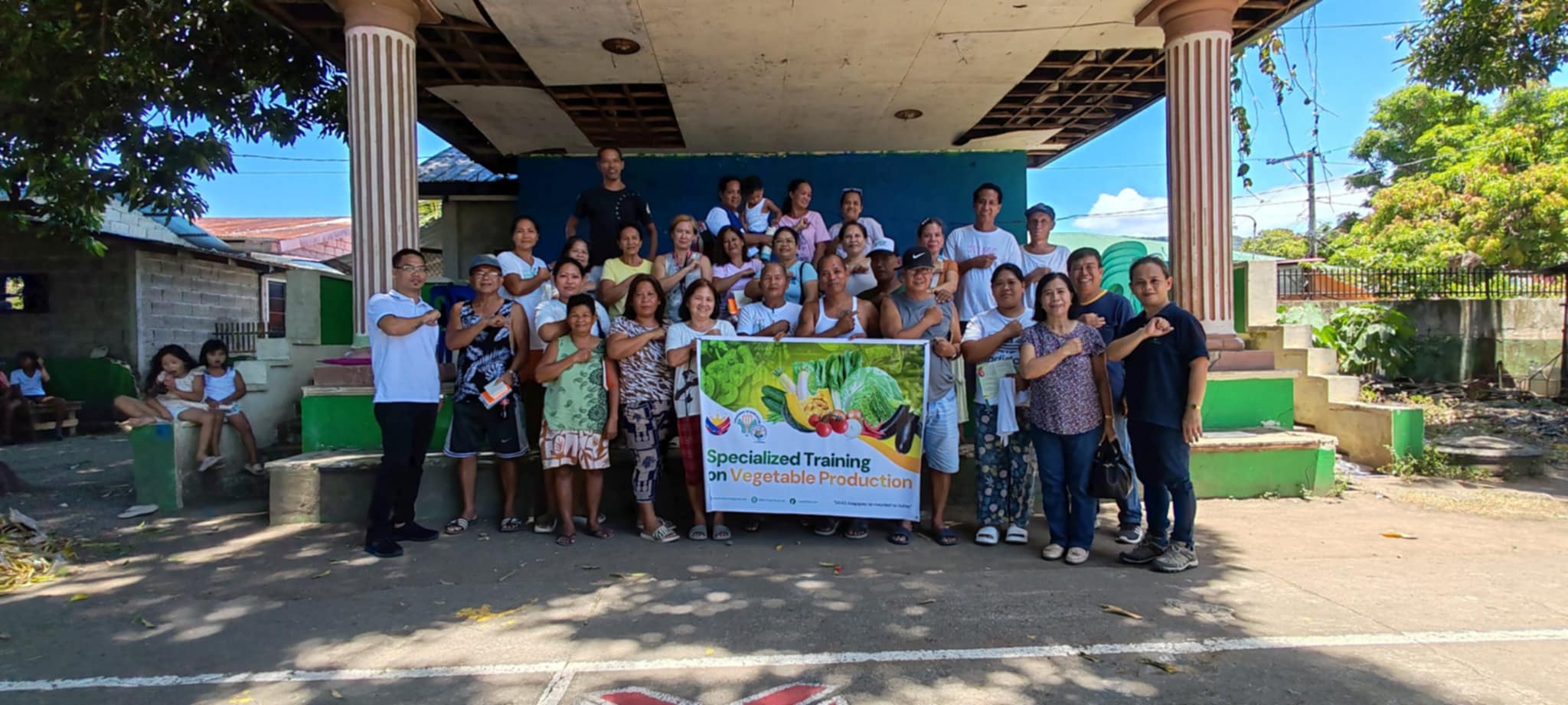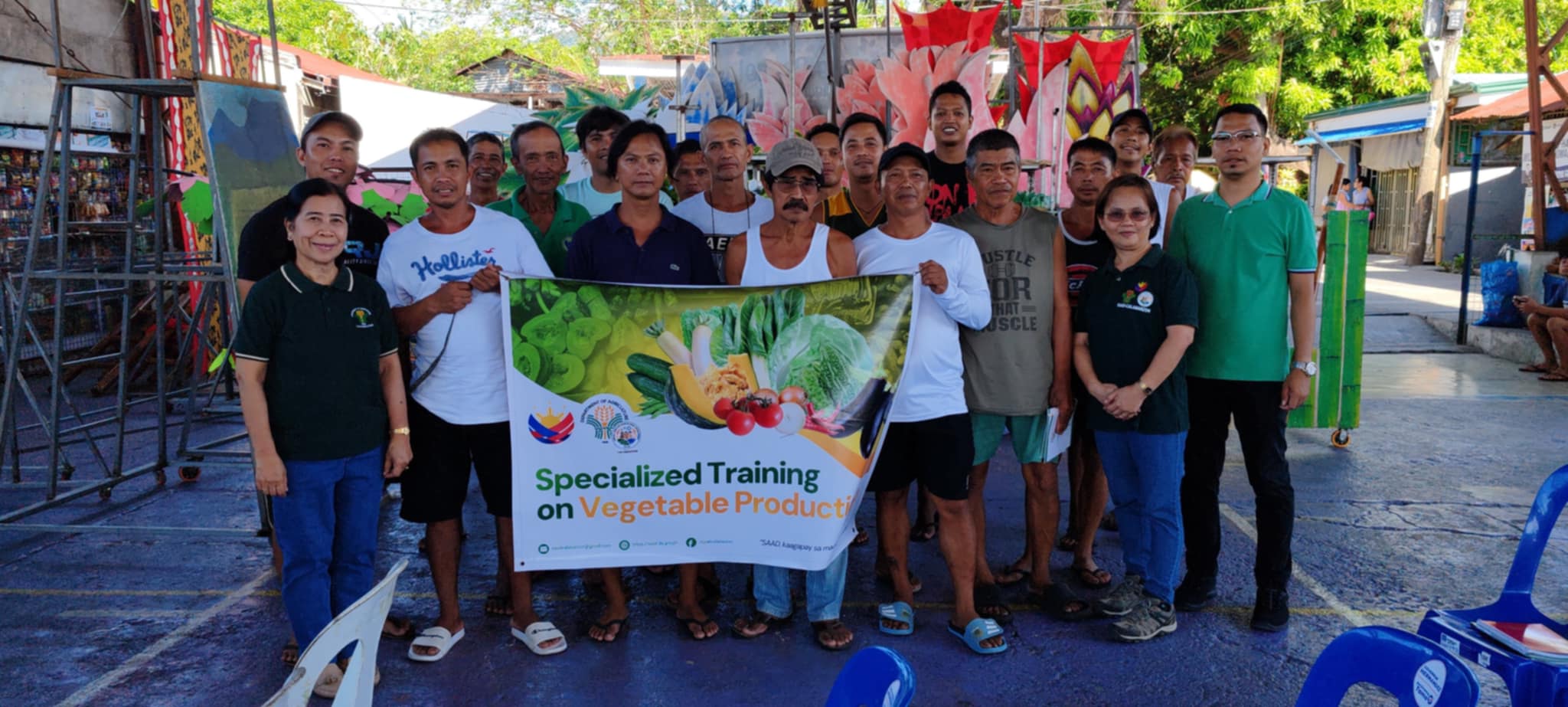Ninety-two (92) beneficiaries from three farmers’ associations (FAs) in Pakil, Laguna completed a series of specialized training conducted by the Special Area for Agricultural Development (SAAD) Program Phase 2.
These specialized training sessions conducted last April 2025, are part of SAAD’s Food Production Livelihood Component designed to prepare beneficiaries for the upcoming distribution of livelihood support and to equip them with the knowledge and skills necessary to manage agricultural enterprises in their communities.
Saray Maliliit FA underwent a focused training on Swine Production to prepare for the management of a community-based swine project.
Agricultural Technologist Ms. Clarissa B. Moral from DA Agricultural Program Coordinating Office (APCO) Batangas guided participants through essential aspects of swine management.
Topics included identifying high-quality breeds based on physical traits, maintaining animal health, ensuring proper housing and sanitation, and applying effective feeding practices. Ms. Moral also emphasized practical strategies for disease prevention.
Despite the logistical challenges of conducting training in Barangay Saray, which is geographically remote and has limited spaces for meetings, the farmers remained highly engaged. Area Coordinator Mr. Melvin A. Dita acknowledged these hurdles but commended the farmers for their consistent participation and strong commitment.
“Malayo talaga ang Barangay Saray at limitado ang espasyo para sa mga pagpupulong at pagsasanay. Bukod dito, magkakalayo rin ang mga tirahan ng mga magsasaka. Sa kabila ng mga hamong ito, kapansin-pansin ang kanilang patuloy na pagsisikap at dedikasyon para sa ikauunlad ng kanilang samahan,” Mr. Dita mentioned.
[Barangay Saray is indeed a remote area, with limited space available for meetings and training sessions. In addition, the homes of the farmers are situated far apart from one another. Despite these challenges, their continued effort and dedication to improving their association remain evident and commendable.]
Meanwhile, Samahan ng Maggugulay ng Barangay Casa Real and Banilan Farmer’s Association participated in training on the vegetable cultivation on April 21 and 22, 2025, respectively which was led by Ms. Virgilia D. Arellano, ACC III from- DA Lipa Agricultural and Experiment Station.
DA-LARES serves as a regional research and training hub located at Lipa, Batangas that develops and promotes sustainable agricultural practices for CALABARZON farming communities. The vegetable production training focused on practical aspects of sustainable farming such as land preparation, crop rotation, seed selection, integrated pest management, and fertilization. She emphasized utilizing organic inputs and avoiding excessive use of chemicals on their vegetable farms.
“Mas mainam na gumamit ng organikong paraan sa pagtatanim para ligtas sa kalikasan at sa tao. Iwasan natin ang sobra-sobrang paggamit ng kemikal para sa mas maganda at matagalang benepisyo sa lupa,” Ms. Arellano shared.
[It is better to use organic farming methods to keep both the environment and people safe. Let’s avoid the excessive use of chemicals for better and long-term benefits to the soil.]
Although Samahan ng Maggugulay ng Barangay Casa Real has been engaged in vegetable production for several years, the group continues to face challenges, particularly in managing pests, diseases, and market instability.
On the other hand, most members of Banilan Farmers Association are relatively new to vegetable farming. Both groups, however, expressed optimism that the technical knowledge gained from the training would help them overcome these obstacles, improve their production practices, and enhance the sustainability of their agricultural livelihood.
These trainings are part of SAAD CALABARZON’s ongoing efforts to promote sustainable, community-driven agricultural development. Additional training sessions are scheduled for farmer-beneficiaries in the municipalities of Rizal, Jomalig, and Patnanungan.
SAAD CALABARZON is actively collaborating with partner agencies, agricultural experts, and local government units to deliver high-impact, relevant training programs tailored to the specific needs of farming communities. ###
